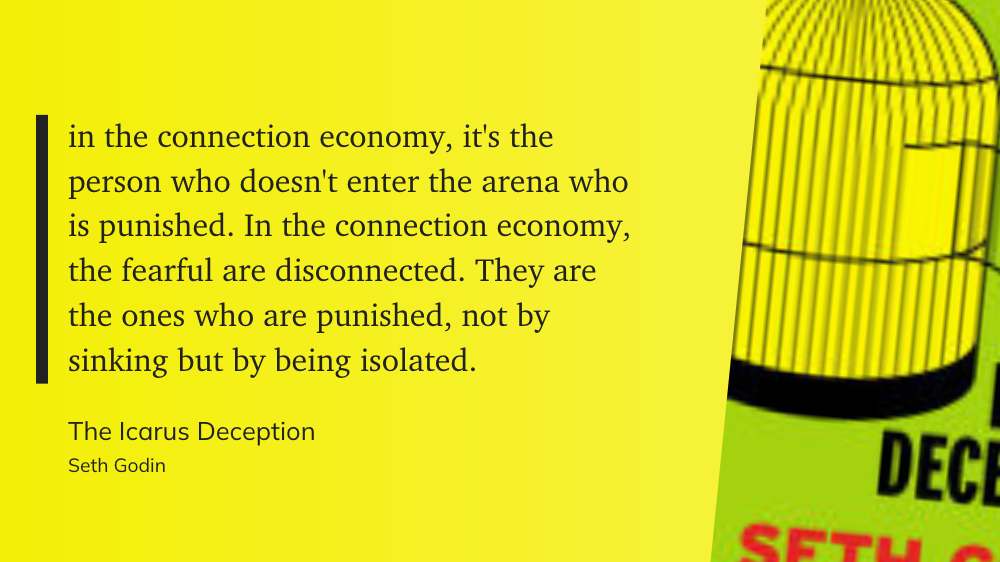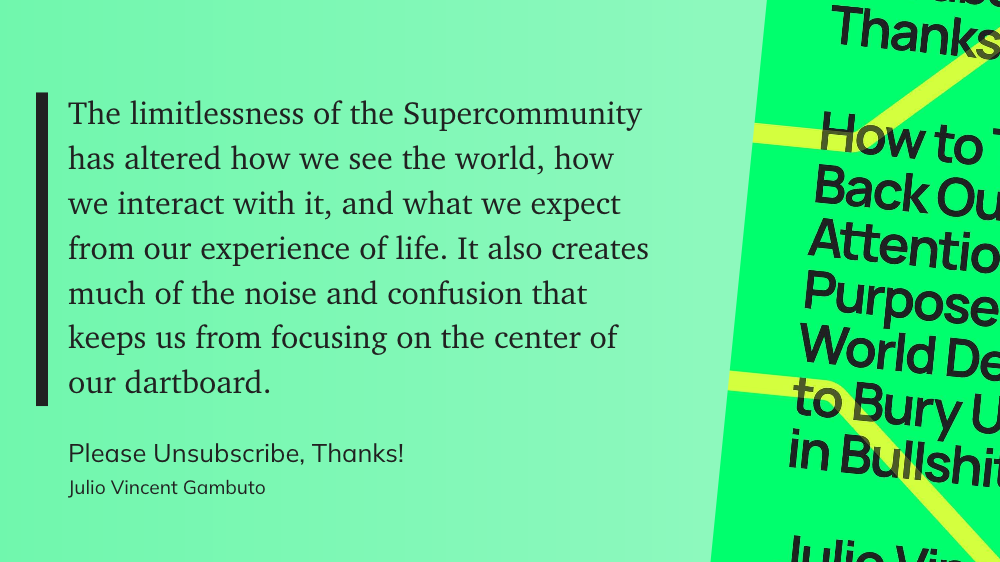Two Green Books
Seth Godin - The Icarus Deception
Julio Vincent Gambuto - Please Unsubscribe, Thanks!
I’ve always liked the color green… especially the neonish version of it, which is probably the result of being a kid of the 80’s and 90’s, raised on Slimer and the Ninja Turtles and Super Soaker water guns… even as I’ve grown and mellowed the hue still excites me, and catches my eye when I see it on a book cover in the library. Or two book covers.
For two books with similar covers and kind of a similar theme, these couldn’t really have more different perspectives. Both are attempting to define in some way “the age” that we live in and how to most effectively survive in it.
Godin pleads that the way of industrialism is dead, and that we now live in a ‘supercommunity’ which can only be successfully navigated by wholly submitting oneself to it, or else face isolation, and presumably…irrelevance. In Godin’s view, everyone must be an “artist” to thrive in this supercommunity - which by his definition is not limited to painters, musicians, etc., but is anyone creating something new that connects with other people. At one point, he describes a waitress “practicing her art” of smiling for the table she’s serving.
Gambuto argues that modern life has oversubscribed everyone to bullshit, that we are constantly bombarded with other people’s (and businesses’) ideas of what happiness is, stuck in an infinite loop of capitalist technology, and that the remedy is to withdraw as much as one possibly can - unfortunately, at its most basic, this recommendation boils down to practices as ineffective as “unsubscribing” from marketing emails. Good luck with that.
I found nuggets of wisdom in each book, as well as ideas that seemed dumb. Godin’s and Gambuto’s writing styles occupy very different places on the pendulum of modern business prose - Godin chips off chapters that are sometimes only a few lines long before changing the subject entirely, while Gambuto might take a long paragraph extending a funny but questionably relevant metaphor to illustrate whatever point he’s trying to make.
I guess that’s what reading is all about. Take away what makes sense for you in the moment, drop the rest and assume it might help or enlighten someone else. Maybe there’s some middle ground between these very different visions of how to be a person today - one who wants to make art, and one who is buried in bullshit - but will that middle ground will have a neon green cover?


